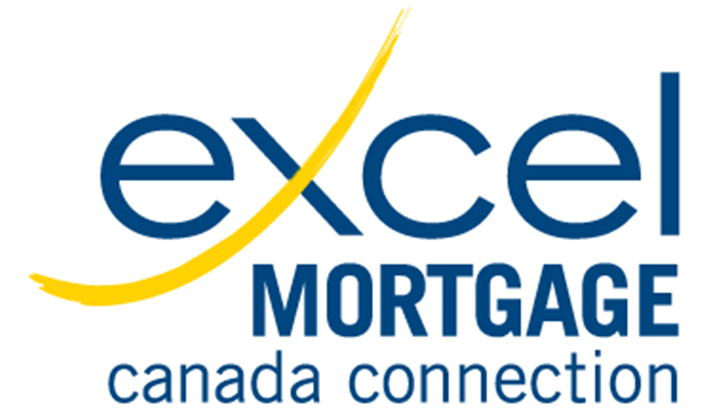Whether it is your first time applying for a mortgage or not, the process can be overwhelming and intimidating. With a great mortgage agent on your side you will be well informed and educated throughout the entire process. Being educated will give you confidence and provides you with realistic expectations.
If you are:
- A First Time Home Buyer
- Looking to Upgrade or Downsize Your Home
- At Your Mortgage Term Renewal
- Wanting to Consolidate Debt and Have Home Equity
- Have ANY Mortgage Related Questions
PLEASE KNOW I AM ALWAYS HAPPY TO HELP!
Thank you for taking the time to visit www.mortgageswithtess.com
Tess Velkovska is a mortgage agent under Excel Mortgage Canada Connection and serves the Cambridge, Guelph, Kitchener, Waterloo, Brantford, Mississauga, Milton and surrounding areas in Ontario.
My office is located at:
382 Queen St W
Cambridge ON N3C 1G8
Head Office:
1 VICTORIA STREET SUITE 613
KITCHENER, ON N2G 0B5
NBC Housing Market Monitor: Widespread decline in home sales in January
Home sales fell 5.8% from December to January, marking the third consecutive monthly decline and the largest drop since February 2025 when U.S. tariffs were announced.
New listings jumped 7.3% from December to January, their first increase in five months and the largest monthly increase since January 2025.
Active listings increased by only 0.4% during the month due to a higher number of cancelled listings, likely due to the lack of momentum in the market.
Market conditions eased during the month but remained balanced at the national level, which largely reflects soft conditions in Ontario and B.C., while markets in all other provinces continue to favour sellers.
Housing starts dropped by 42.6K from 280.7K in December to 238.0K in January (seasonally adjusted and annualized), a print well below the consensus calling for 262.5K. Starts decreased in urban areas (-50.2K to 218.2K), while they increased in rural areas (+7.6K to 19.9K). In urban centres, the drop stemmed from the multi-unit segment (-51.9K to 177.0K), while the single-detached segment increased slightly (+1.7K to 41.2K). Decreases in housing starts were seen in Montreal (-11.5K to 17.6K), Toronto (-1.3K to 28.4K), and Vancouver (-0.4K to 33.5K), while Calgary (+10.2K to 25.6K) registered an increase.
The TeranetNational Bank Composite National House Price Index declined by 0.4% from December to January after seasonal adjustment. Seven of the eleven CMAs included in the index recorded declines: Ottawa-Gatineau (-2.4%), Winnipeg (-1.0%), Toronto (-0.9%), Edmonton (-0.9%), Vancouver (-0.7%), Hamilton (-0.5%), and Victoria (-0.1%). Conversely, prices rose in Halifax (+2.0%), Quebec City (+1.6%), Montreal (+1.4%) and Calgary (+0.7%).
https://www.nbc.ca/content/dam/bnc/taux-analyses/analyse-eco/logement/economic-news-resale-market.pdf
CMHC: Canadian Home Sales Begin 2026 on Ice as Snow Buries Central Canada
The number of home sales recorded over Canadian MLS Systems fell 5.8% on a month-over-month basis in January 2026.
The monthly decline in national home sales was driven primarily by less activity in the Greater Golden Horseshoe and Southwestern Ontario, suggesting that the story was probably more about a historic winter storm than a downshift in demand, said Shaun Cathcart, CREAs Senior Economist. Notwithstanding the chilly start to the year, we continue to expect 2026 will ultimately be defined by pent-up demand from first-time buyers finally seeing a chance to enter the market.
January Highlights:
National home sales declined 5.8% month-over-month.
Actual (not seasonally adjusted) monthly activity came in 16.2% below January 2025.
The number of newly listed properties jumped 7.3% on a month-over-month basis.
The MLS Home Price Index (HPI) fell 0.9% month-over-month and was down 4.9% on a year-over-year basis.
The actual (not seasonally adjusted) national average sale price dipped 2.6% on a year-over-year basis in January 2026.
Similar to what happened in January 2025, new supply jumped on a month-over-month basis in January 2026, rising 7.3% as sellers seemed eager to get the year started.
The burst of new supply was driven by about two-thirds of local markets, and led by Montreal, Quebec City, Calgary, Greater Vancouver, and Victoria. Meanwhile, Central and Southwestern Ontario were far less prominent and, in many cases, recorded declines. This reinforces the view that winter weather was a primary factor in January in those regions, as it appears to have suppressed both demand and supply.
https://www.crea.ca/media-hub/news/home-sales-in-canada-end-2025-quietly-2/
CMHC: Housing Market Outlook 2026
Canadas economy is expected to grow slowly in 2026, as the following factors weigh on demand: geopolitical and trade uncertainty, significantly lower population growth, soft labour markets and modest income growth. Growth is projected to improve slowly in 2027 and 2028.
Housing demand is projected to gain momentum while sales stay below historical averages and prices show only modest gains after falling in 2025.
New home construction is set to decline through 2028 as developers face high costs, weaker demand and more unsold homes. Condominium starts will be especially weak. Rental projects will continue to drive new supply but will moderate over the forecast period.
Rental markets are moving toward balance from an overall national perspective as new supply eases pressure and rent growth slows, giving renters more flexibility before buying a home.
Regional housing markets vary significantly. Construction and home sales in Ontario and British Columbia will be weaker than their 10-year averages while, in the Prairies and Quebec, they will remain above their historical averages. Ontario is the only region expected to see price declines in 2026.
https://www.cmhc-schl.gc.ca/professionals/housing-markets-data-and-research/market-reports/housing-market/housing-market-outlook





























